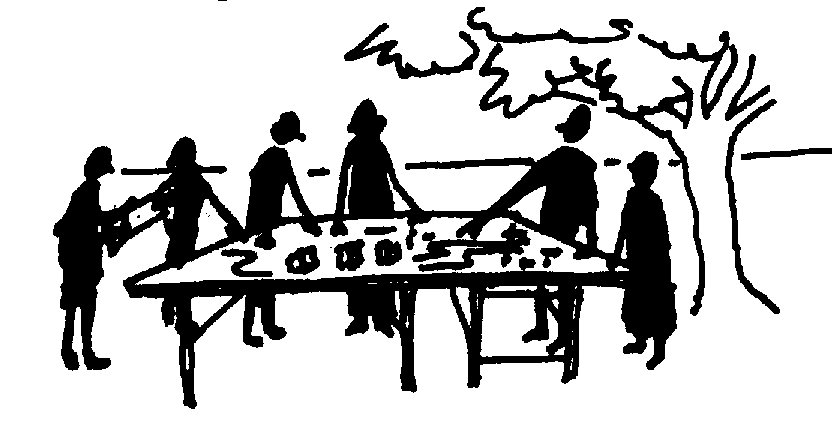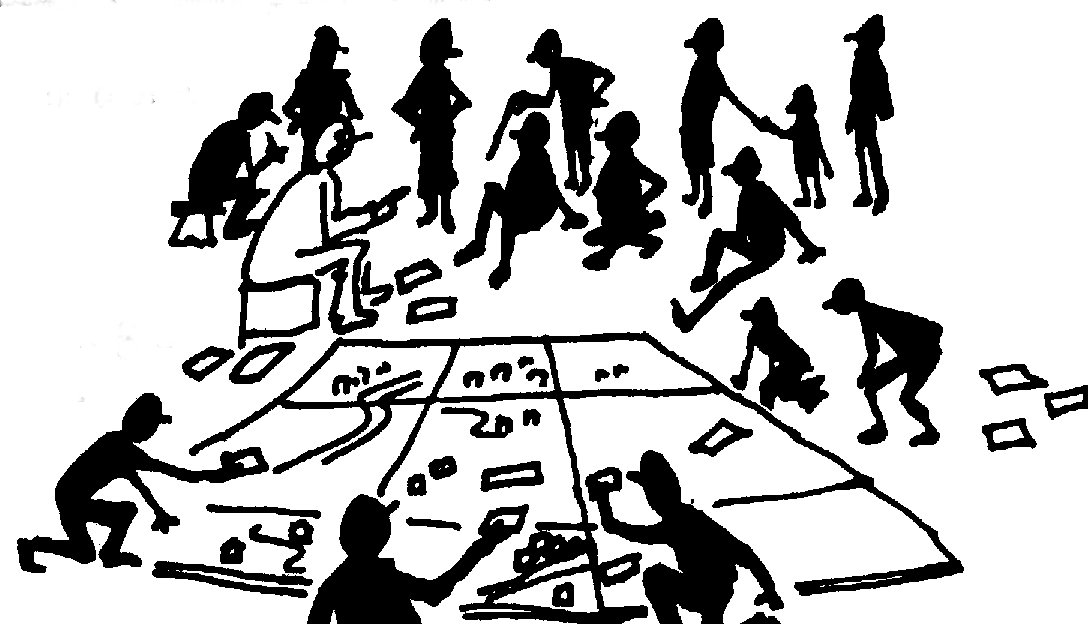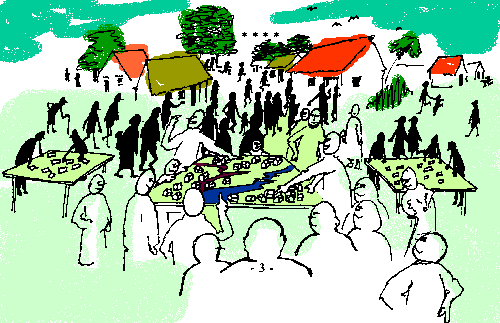|
 Basic
Program Outline Basic
Program Outline
The social aspests of this program are based
in the concepts of Appreciative Inquiry as developed initially by David
Copperrider.
Each program is specifically taiulored to the
needs and interests of the host community, however a general outline would
normally involve:
- Initial meeting with whole community to
outline the program, its aims and methodology. At this meeting the members
of the project working group would be defined by the whole community.
- Using basic diagnostic tools such as the
mapping, and calender processes from Participatory Rural Appraisal,
the working group would start to define the resourses available to the
community.
- The working group would develop a common
interview protocol that will be used to allow all members of the community
to tell their stories of the history of the community, especially in
relationship to water resources and with an emphasis on the "highlights"
of their experiences.
- Using these stories, the working group will
determine the basic aims and dreams of the community (in regards water) and
develop long term objectives consistant with these dreams.
- These defined dreams and long term
objectives would be reported to the whole community through general meetings,
posters, information displays and discussion groups.
- When the whole community has agreement on
the overall aims and objectives, the working group will start the
process of investigating and defining the strategies and practices that may
be available. All this this information will constantly be feed to the whole
community, constant feed-back and input strongly encouraged.
 During
this process, the working group will also develop a large-scale model of the
community and surrounding area - this phase could be conducted in
partnership with the local high-school or youth groups. During
this process, the working group will also develop a large-scale model of the
community and surrounding area - this phase could be conducted in
partnership with the local high-school or youth groups. - A whole community/whole day planning event
will be conducted by the working group. The focus of the day will be the
model, with everyone having the opportunity to input ideas suggestions and
solutions. Towards the end of this day, a etailed plan of action will be
developed, clearly defining priorities and areas of responsibilities.
Specific working/investigation committees will be formed to continue the
development of specific parts of the plan.
- The community now has a clear idea of its
future direction. Working bees will be organised, funds levied or sought and
specific projects planned and carried out. A committee will be used to
coordinate the on-going activities and to regularly report to whole
community meetings the progress of the works. The community will be
encouraged to repeat and review the whole process at least every two
years.
Top of Page Home Page
Home Page
Webmaster: Skye
|